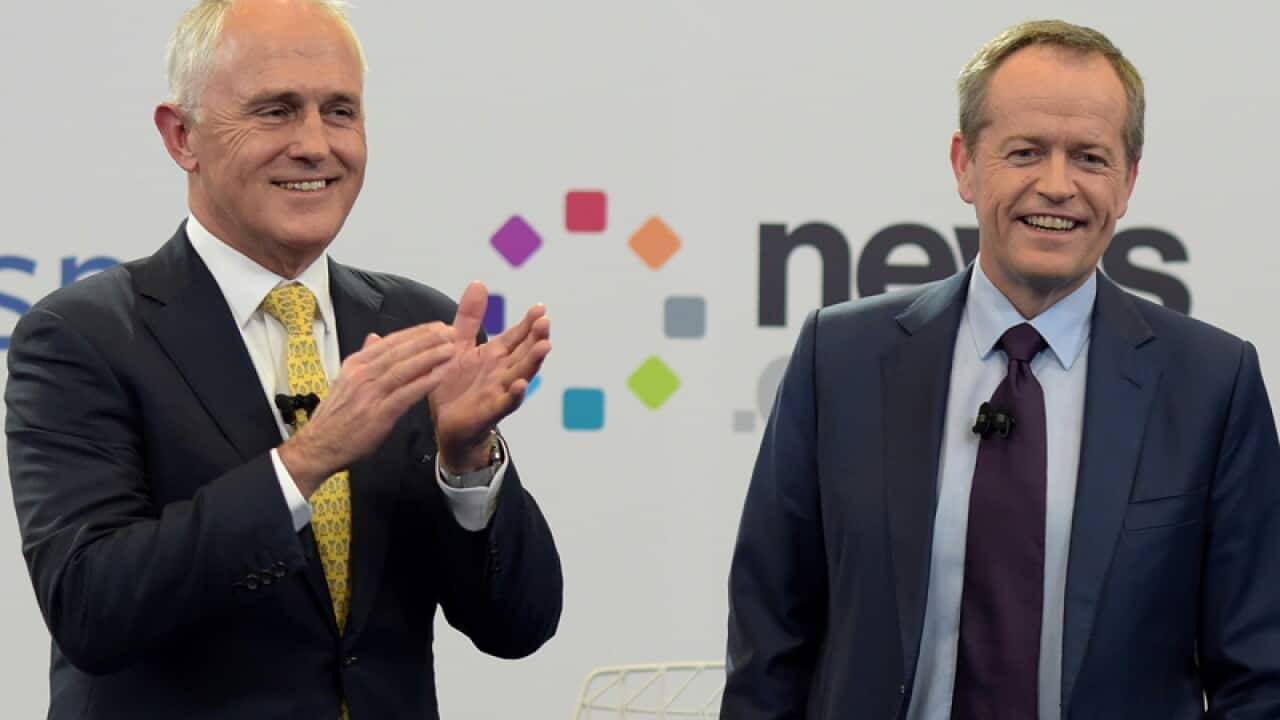Labor has broadened its attack on the coalition's approach to Medicare, as Malcolm Turnbull dumped a plan to talk to the private sector about running the multi-billion-dollar health payment system.
Since the coalition government's election in 2013 it has been seeking ways to cut costs and red tape within Medicare and other public services through more private sector involvement.
A $5 million task force was set up to look at privatising the payments system, potentially saving billions of taxpayers dollars.
Mr Shorten told Labor's official campaign launch on Sunday the task force, and a Productivity Commission inquiry along similar lines, meant the election was a referendum on keeping Medicare in public hands.
But, campaigning in Sydney on Monday, the prime minister told reporters Medicare would never be sold and all aspects of it, including the payments system, would remain public.
"Every element of Medicare services that is currently being delivered by government will continue to be delivered by government, full stop," he said.
Mr Turnbull said the government's own digital transformation office would work to make Medicare services more user-friendly, enable the rollout of smartphone technology and improve doctor transactions.
"But it will all be done within government," he said.
The Liberal Party has also rolled out election posters, signed by Mr Turnbull, which say: "I guarantee Medicare stays".
Mr Shorten widened his definition of a "privatised" Medicare to include the government's six-year Medicare benefits freeze, changes to bulk-billing payments for pathology and diagnostic imaging, cuts to the safety net and hikes in prescriptions.
"Tony Abbott said we would never see cuts to health and education and we know how that film ended," Mr Shorten told reporters in Perth.
Labor's health spokeswoman Catherine King conceded Medicare's IT systems would have to be modernised.
"But under no circumstances would you flog it off as they've done with the new national cancer registry," she told ABC Radio.
Institute of Public Affairs director John Roskam said if the government could not stand by a modest $5 million cost-benefit analysis the nation had a "huge problem".
"We can't be backing down on savings on the basis of unfounded scare campaigns," he told AAP.
"The debate about Medicare is a window into a very disappointing future."
The two major parties are locked at 50-50 in the latest Newspoll, showing the campaign has done little to shift voters with two weeks until polling day.
Mr Turnbull, who is battling a cold, pledged extra funding for city councils for renewable energy and energy efficiency.
Having already lost a candidate in WA in controversial circumstances, Labor has jettisoned a second candidate - this time in the NSW seat of Farrer.
Christian Kunde stepped down after it was revealed in the Daily Telegraph he had defended a senior member of the extremist Islamic group, Hizb ut-Tahrir.
"We have a high standard. As soon as I was aware of the issue we immediately accepted his resignation," Mr Shorten said.
Treasurer Scott Morrison said the government had not given up entirely on finding efficiencies in Medicare.
"What we will do is make sure we will achieve the best efficiencies within the system that we have," Mr Morrison told ABC TV's The Business on Monday.
"What we need to be careful of is not give the opposition any hint of any opportunity of pursuing this campaign, because it's a conspiracy theory."

